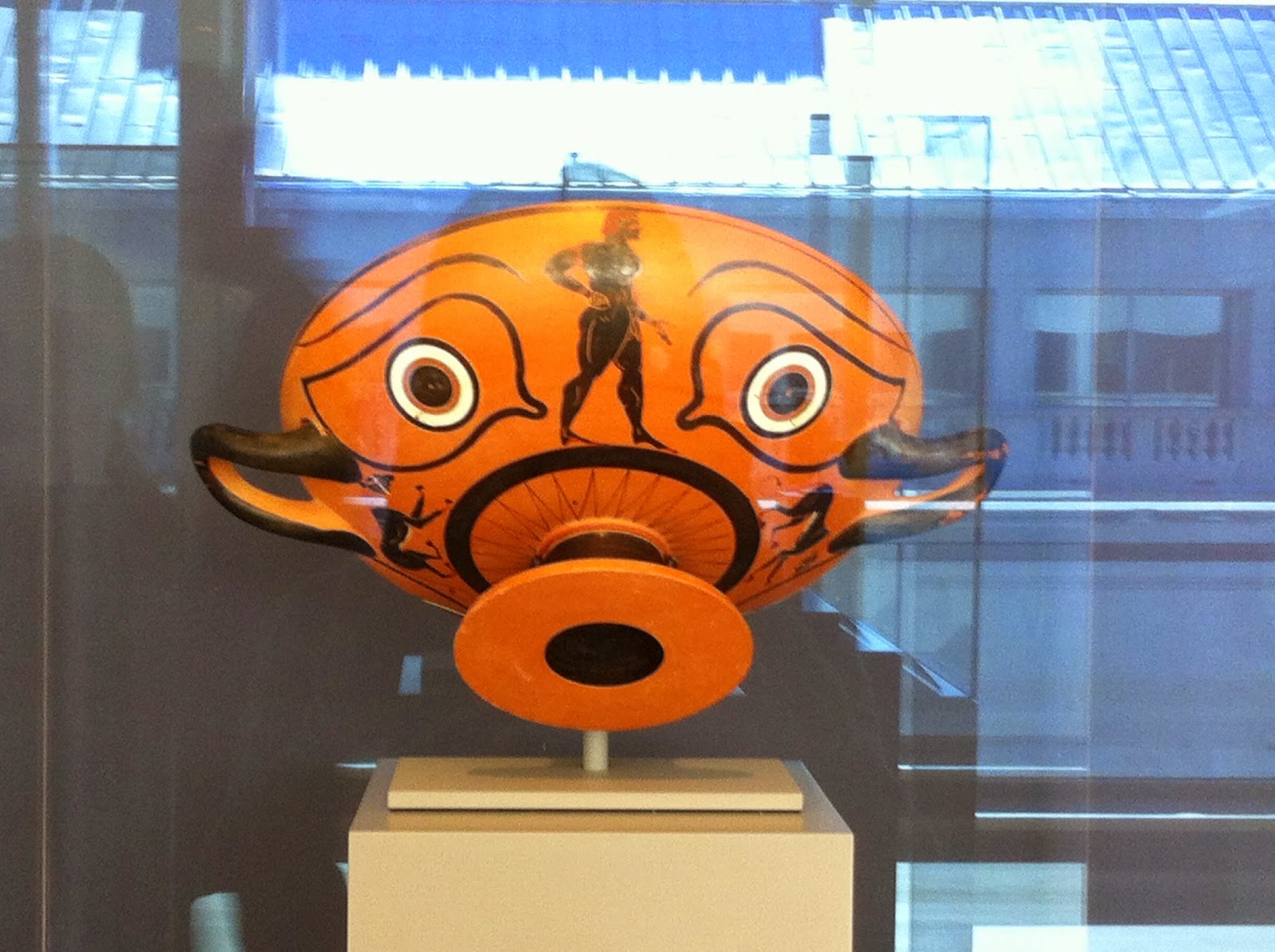((Disclaimer: I’m writing most of this from memory. Unlike the rest of my articles on this blog, I can’t vouch for the content’s complete accuracy.))
Last week I met the Greeks, Romans, Byzantines and Etruscans at the Chicago Art Institute. The experience was transcendent; I teared up when I saw the Athenian vases. Some long-dead artist touched those pots. I could have touched them too if I’d had a hammer for the display case.
My favorite pieces were two Fayum portraits, shown below. Since nobody knows the names of the subjects, I decided to call the cheerful man Jerry. The other is his surly friend, Damien.
 |
| Jerry |
 |
| Damien |
Fayum portraits are essentially mummy masks, although prior to the subject’s death they were kept on display in the house. These two hail from Roman Egypt sometime in the second century. The gold laurels you see around Jerry’s head were added after he died--one last way to flaunt his wealth. I think Damien’s jealous.
Here’s another one of my favorite exhibits: the Greek Eye-Cup.
When used as a drinking vessel, the bottom of the bowl creates a mask, complete with an open mouth and handles for ears. It is thought that Eye-Cups were related to related to Dionysus somehow, seeing as he’s the god of wine and theatre.
Another Greek exhibit included gravestones, known as steles. Usually sculptures aren’t my thing, but the emotion captured in these figures was enough to stir the most jaded heart. Take the picture below for example, in which you can see a couple clasping hands. Maybe they didn’t want to let go. Or perhaps the family wanted to show that they were still linked to their loved one. Whatever the case, it made the Greeks much more relatable.
And maybe that’s what I loved about the Art Institute. Maybe that’s what I love about history. It reveals what makes us human. Two-thousand years ago, a woman became a widow. Two-thousand years ago, fathers drank from the Eye-Cup while their children pointed and laughed. We like to think we're more advanced in the twenty-first century, but we haven't changed much. I don't think we ever will.


No comments:
Post a Comment